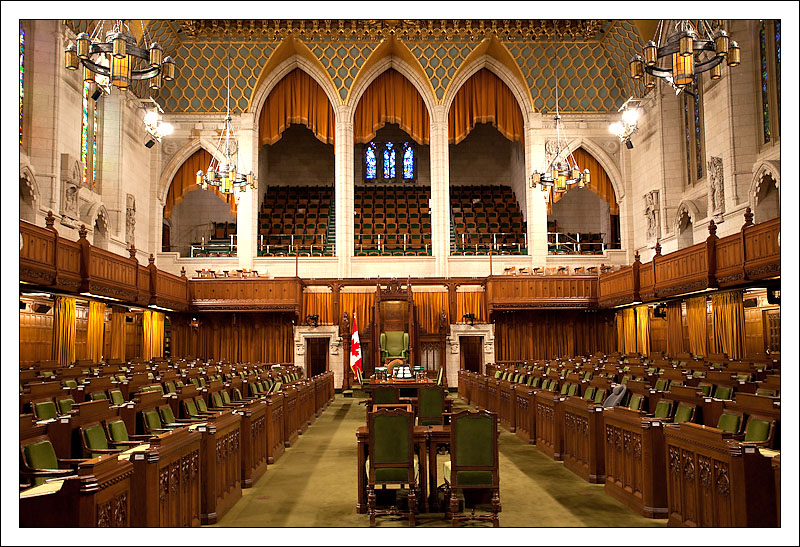http://www.c2cjournal.ca/2016/01/the-supreme-guide-to-electoral-reform/
By: Jason VandenBeukel on January 12, 2016 |

Perhaps the most surprising thing about the Liberal government’s controversial commitment to replace the first-past-the-post (FPTP) electoral system with a more representative voting system is that they actually seem committed to following it through.
Many political parties, both in Canada and around the world, have campaigned on promises of electoral reform, only to quietly shelve the issue once they managed to win government through the distorting powers of FPTP. After all, why change the system which gave you 100 percent of the power with just 39 percent of the vote?
But Liberal House Leader Dominic Leblanc told CTV on December 28 that the new government is determined to deliver on their election promise. What’s more, he pretty well ruled out a referendum on it, which is one of the strongest possible indicators that the Liberals really do intend to bring an end to FPTP in Canada.
Recent efforts at electoral reform in Prince Edward Island, Ontario, and British Columbia were all quashed when the question was put directly to voters. Whatever its flaws, most Canadians seem quite fond of the current voting system, which means a referendum would likely torpedo the Liberals’ plan.
The Conservatives certainly seem to think so, judging from their strenuous opposition to the Liberals’ vow to change the electoral system through Parliament. The Tories are well aware that they generally do much better under FPTP, which punishes the divided political left and rewards the united right, than they would under any other system. Supporting a referendum which dooms electoral reform to failure, therefore, is obviously in their best interest.
Even so, the Conservatives’ main argument is hard to ignore: if FPTP is too undemocratic to elect our House of Commons, then how can a government elected through FPTP claim it has the democratic legitimacy to change the electoral system?
What is missing from all the arguments over electoral reform, and a referendum on electoral reform, is any notice of the fact that our Supreme Court dealt with a very similar question less than two years ago. When the Harper government asked if it would be constitutionally acceptable to introduce Senate elections and term limits to the upper house, the Court ruled that “elections for the nominations of Senators would change our Constitution’s architecture, by endowing Senators with a popular mandate which is inconsistent with the Senate’s fundamental nature and role as a complementary legislative chamber of sober second thought.”
In other words, any reform that would significantly change the way in which Senators are selected can only be made by amending the Constitution, which effectively meant that there could be no such change.
The same constitutional logic could and should be applied to the House of Commons. The Senate, despite the beating its reputation has taken over the last few years, is so important in the eyes of the Supreme Court that any major changes to its composition require the approval of all the provinces.
If that is the case, then surely the way we select the House of Commons, the elected chamber which provides us with the Prime Minister, the Cabinet, and the government, deserves at least as high a level of democratic ratification.
Everyone agrees that electoral reform will fundamentally change the way our government works. One-party governments will almost certainly be replaced by coalitions, and elections will likely be more frequent and more widely contested.
And while the Constitution explicitly gives the federal Parliament the power to change the way in which the House of Commons is elected, the logic underpinning the Supreme Court’s direction on Senate reform cannot be ignored. This isn’t just about tinkering on the edges of the democratic process; electoral reform will completely reshape our political system.
The argument which the Supreme Court justices made in their decision on Senate reform, in which they developed an all too brief respect for the intent of the people who wrote our Constitution in the first place, is quite clear: changing the rules of the political game in such a significant way is much too big a responsibility for one government or one party.
Some Senate reformers would argue that Harper’s proposed changes were constitutionally valid and the Court invented an argument against them.
There may be truth in that, but the Court’s underlying message was that our core democratic institutions should not be changed by Parliament alone. So it is with the electoral system. A change of this importance and magnitude needs to be made in a manner consistent with its far-reaching effects.
Electoral reform that is simply pushed through Parliament by the Liberals and over the objections of the opposition is itself more undemocratic than FPTP could ever be.
There is only one democratically legitimate way to change the system: let the people decide.
~
Jason VandenBeukel is currently working on a PhD in Canadian Politics at the University of Toronto. He also holds an MA in Political Science and a BA in History from Brock University. He has previously contributed a number of articles to The Prince Arthur Herald.
No comments:
Post a Comment